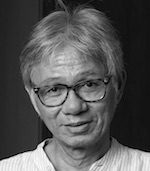

In one of those rare moments, Rodrigo Duterte said something comprehensible and, moreover, decidedly revelatory about both himself and us.
Never mind that he may not be aware, given his mental condition, of the implications of what he said, but it was worrisome enough that he, as president, said it, and that what he said was just too consistent with his "anti-social narcissistic personality."
Television journalist Jessica Soho got it out of him when she asked if he did not sometimes feel the need to explain himself. It might have been adequately proper of him to have simply said no, sorry, but his condition prevented him.
His presidential ego apparently bruised by the suggestion of some imperfection on his part, he threw the problem back at Soho and the rest of the nation, "If you cannot understand me...the Filipino nation, kayo, ang may problema."
Supporters tend to present Duterte as a sort of eccentric or maverick, and official explainers clarify as "mere hyperbole" his utterances that normally would be offensive, while attempting to portray him as a bold and decisive, if unusual, leader. But he comes across instead as crass and deviant. His refusal to even try to make an effort to make the nation that made him president know where he's taking it, for instance, constitutes an in-your-face mockery of it.
But how could Duterte's regime have been expected to be benign at all when a ringing reputation for ruthlessness as mayor of Davao City for more than two decades had preceded him? He had been known not only to keep a death squad but to sometimes do the job himself– he has in fact publicly owned to 4 kills by his own hand (hyperbole?). The diagnosis of his mental disorder is a matter of public record, having been admitted into evidence in a marriage-annulment case won by his wife.
Sure enough, upon assuming the presidency, Duterte began acting out his draconian impulses. He mounted a brutal and obsessive war against drugs and threatened to pursue it until all 4 million drug dealers and users were dead. Actually, it will take a few centuries to exterminate that number (his own count) at the rate his war is going, which has netted, at the hands of police and vigilantes, 16,000 dead, about the highest estimate, in the year and a half of his six-year term.
Duterte also sent his troops and bombers against what he called an Islamic State (ISIS)-inspired, homebred enemy in the southern city of Marawi. He declared the battle won after 5 months, but has kept the whole island of Mindanao, where Marawi is situated, under martial law. Indeed, his oft-expressed wish is to put the entire nation under a revolutionary government.
Where all this sense of emergency is coming from he is unable to say with a modicum of reason. But why should he even bother to explain? The opinion polls show that he has remained widely popular the way he is, Congress has been doing his bidding without question, and the Supreme Court deciding in favor of just about every case he is known to support.
Meanwhile, Leila de Lima, who, as chairperson of the Commission on Human Rights, had investigated Duterte when he was mayor and continued, as senator, to go after him when he became president, has been thrown in jail, summarily. And Chief Justice Maria Lourdes Sereno, who simply, and ever so gently, reminded Duterte about the principle of separation of powers when he started undermining the judiciary, is now being dragged through impeachment hearings in the Lower House before she is tried in the Senate.
The ombudsman, former Supreme Court Justice Conchita Carpio-Morales, is herself threatened with impeachment, and all she's done is assert her independence and show, as only expected of her, no fear of, or favor for, anyone – sitting president or past president or no president.
Thus democracy is hijacked and perverted to allow tyranny by the majority. Duterte and Congress are in it together for one conspiratorial cause: a constitutional amendment providing for a shift from the present unitary system to a nation of federalist states. Doubtless, the allure of federalism to its sponsors is that it will solidify the grip on power of the very political gangs and dynasties they represent and institutionalize the culture of patronage that has dominated all levels of Philippine politics.
Congress has in fact begun the federalism ball rolling on Duterte's signal. And, hoping to catch the pro-Duterte wave of sentiments in the plebiscite for federalism, it is taking the quickest and surest, though not the most ethical, route; instead of leaving the constitutional rewriting to a nationally elected commission, it has decided to do the job itself – and serve itself.
So, does President Duterte need yet to make us see where he's taking us? Isn't it obvious enough?
We're bound for constitutional tyranny! – Rappler.com